Case Studies
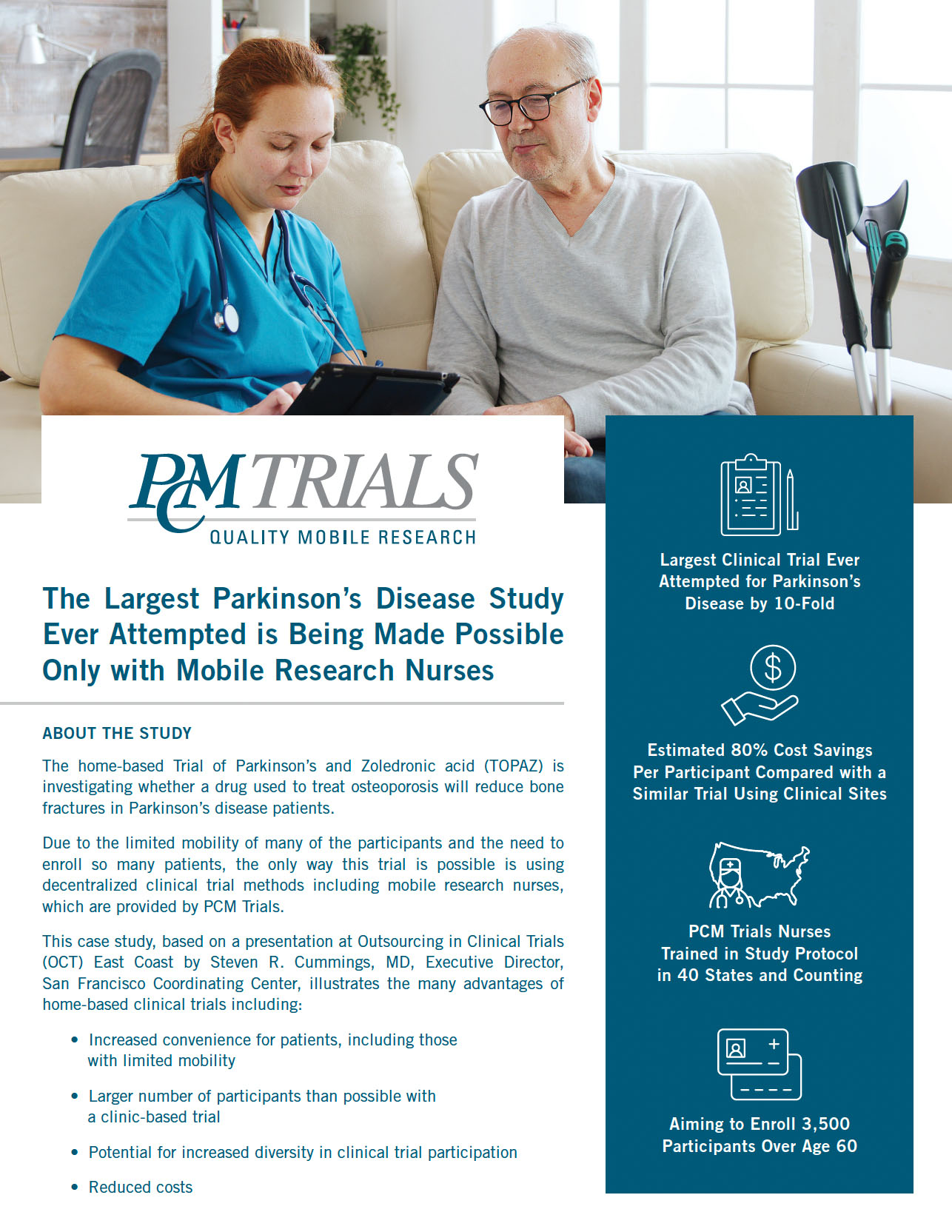
The Largest Parkinson’s Disease Study Ever Attempted is Being Made Possible Only with Mobile Research Nurses
The home-based Trial of Parkinson’s and Zoledronic acid (TOPAZ) is investigating whether a drug used to treat osteoporosis will reduce bone fractures in Parkinson’s disease patients.
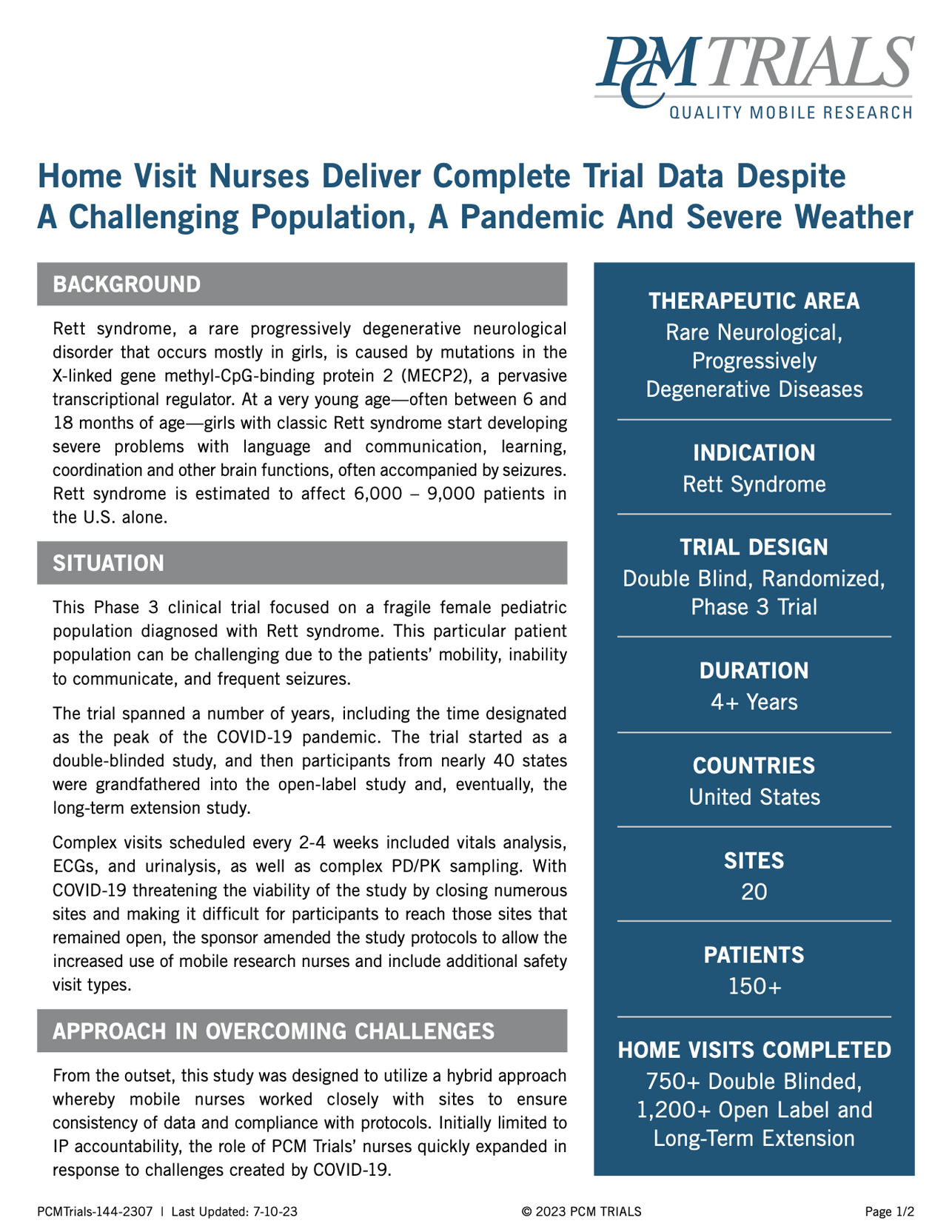
Home Visit Nurses Deliver Complete Trial Data Despite A Challenging Population, A Pandemic And Severe Weather
Rett syndrome, a rare progressively degenerative neurological disorder that occurs mostly in girls, is caused by mutations in the X-linked gene methyl-CpG-binding protein 2 (MECP2), a pervasive transcriptional regulator. At a very young age—often between 6 and 18 months of age—girls with classic Rett syndrome start developing severe problems with language and communication, learning, coordination and other brain functions, often accompanied by seizures.
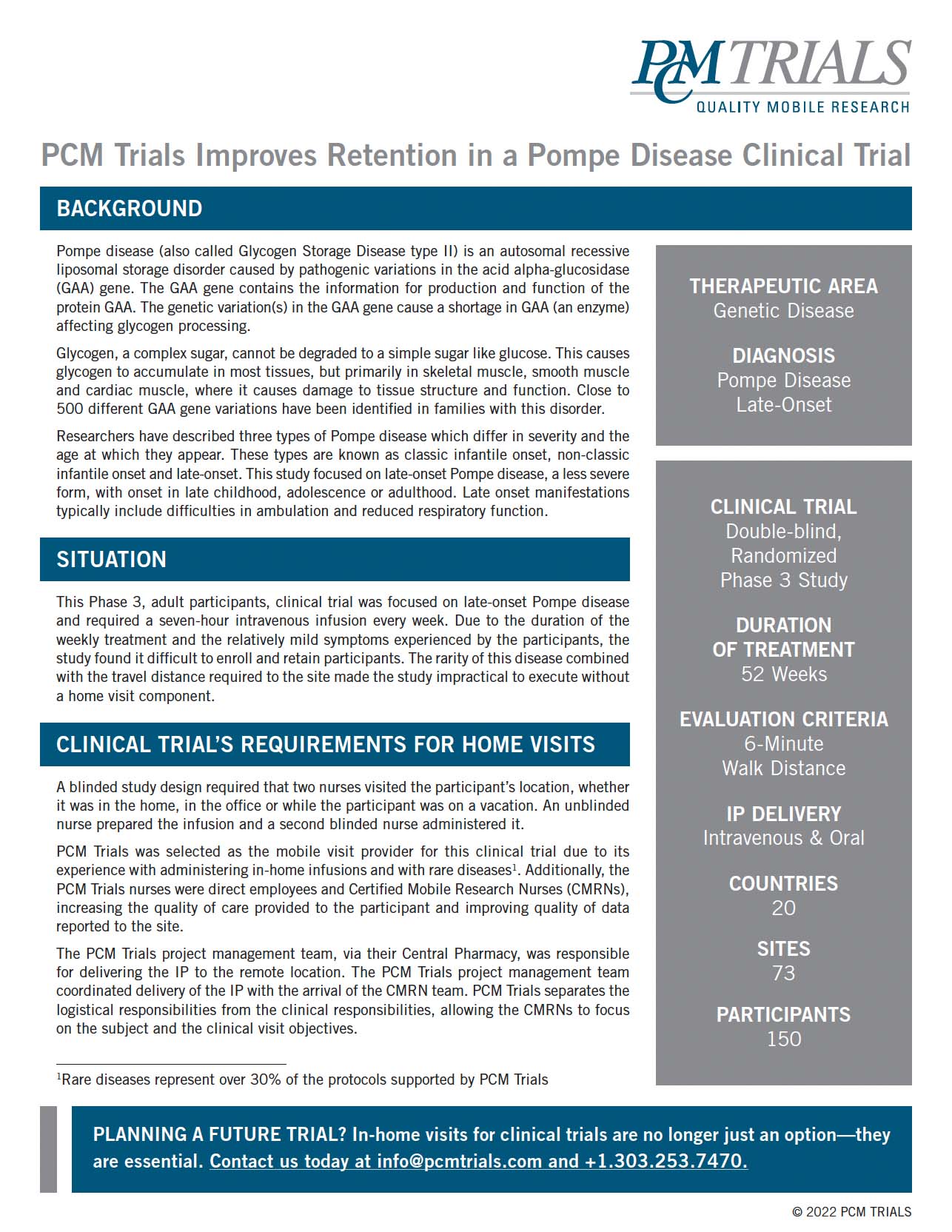
PCM Trials Improves Retention in a Pompe Disease Clinical Trial
Pompe disease (also called Glycogen Storage Disease type II) is an autosomal recessive liposomal storage disorder caused by pathogenic variations in the acid alpha-glucosidase (GAA) gene. The GAA gene contains the information for production and function of the protein GAA. The genetic variation(s) in the GAA gene cause a shortage in GAA (an enzyme) affecting glycogen processing.
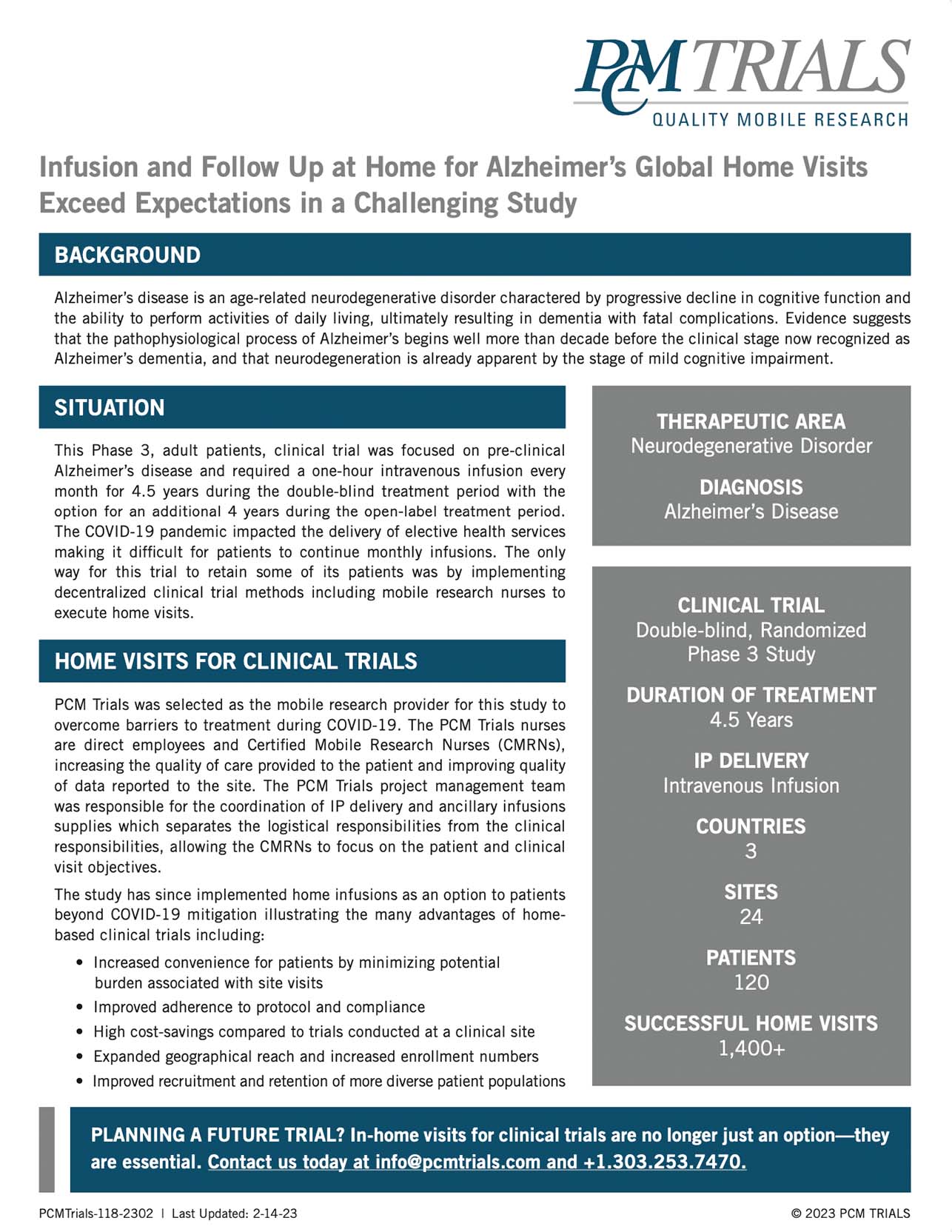
Infusion and Follow Up at Home for Alzheimer’s Global Home Visits Exceed Expectations in a Challenging Study
Alzheimer’s disease is an age-related neurodegenerative disorder charactered by progressive decline in cognitive function and the ability to perform activities of daily living, ultimately resulting in dementia with fatal complications. Evidence suggests that the pathophysiological process of Alzheimer’s begins well more than decade before the clinical stage now recognized as Alzheimer’s dementia, and that neurodegeneration is already apparent by the stage of mild cognitive impairment.
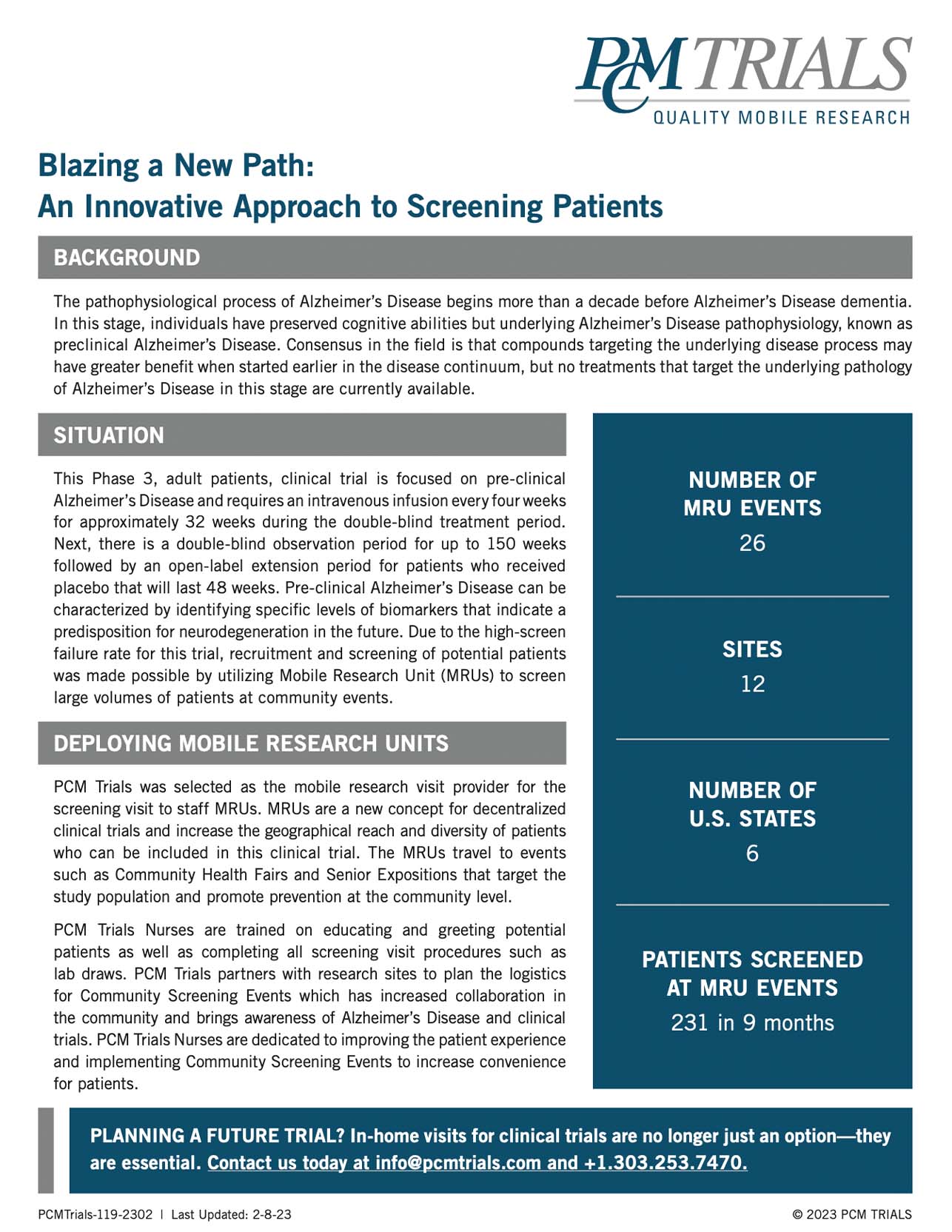
Blazing a New Path: An Innovative Approach to Screening Patients
The pathophysiological process of Alzheimer’s Disease begins more than a decade before the clinical stage, now recognized as Alzheimer’s Disease dementia. In this stage, individuals have preserved cognitive abilities, but underlying Alzheimer’s Disease pathophysiology, known as preclinical Alzheimer’s Disease. Consensus in the field is that compounds targeting the underlying disease process may have greater benefit when started earlier in the disease continuum, but no treatments that target the underlying pathology of Alzheimer’s Disease in the pre-clinical stage are currently available.
Please sign up to receive more case studies, white papers, and other PCM Trials resources here.
PCM Trials will be creating more resources as our clinical trials are completed. We have other resources such as webinars, videos, and PCM Trials in the news information you can subscribe to.
"*" indicates required fields
